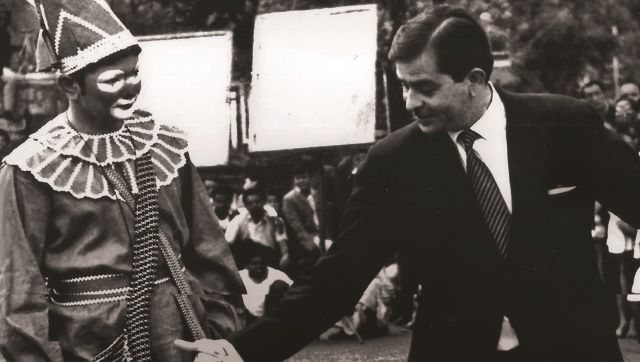[ad_1]
The blurb tells us “it’s more than a novel”, an odd remark if only because it seems to devalue novel writing. Jane Austen disapproved of such things. “Nothing but a novel! ‘ – or, in short, only a work in which the deepest knowledge of human nature, the happiest delimitation of its varieties, the most lively outpourings of wit and humor are conveyed to the world in the language best chosen. Absolutely.
Of course, I’m not suggesting that the publisher of Julian Barnes’ new novel should issue a warning to the naive or unwary reader who expects or hopes only for a good story. In truth, only a reader new to his work could seek only that. There is always a story in his novels, sometimes half-buried, but you read them because perhaps more than any of his contemporaries in the fine vintage established nearly half a century ago, he satisfies Austen’s description of the art and craft of fiction.
Neil, the narrator of this novel, is a middle-aged man who has achieved very little: two failed marriages, an undistinguished career behind him. Nothing meant more to him than a postgraduate course on “Culture and Civilization” taught by a remarkable woman called Elizabeth Finch. Very intelligent, elegant, distant, she fascinates him, leaves him perplexed, disturbs him and enriches his life. Later, he enjoyed lunches with her; she always paid. She looked back to the classical world and believed that the world took a wrong turn when the Roman Empire adopted the monotheistic Christian religion. Its hero was the last pagan emperor, Julian the Apostate.
The first part of the novel recounts EF’s teaching, the lunches Neil had with her, and his speculations about her. The second is an essay he wrote on the apostate that explores some Christian myths and questions, though he clearly couldn’t answer the disturbing question EF posed to his class. The third part is an attempt to reconstruct his biography. first made possible, albeit difficult, because she bequeathed her papers to him. As they are not very revealing. He asks for help from his brother, a very different ordinary character, a kind businessman who loved his sister, was on good terms with her, but shared none of her interests and little in her life. Thus, the novel is in a sense a story of detection as well as a philosophical exploration of EF’s thought. so that, as in a late novel by Henry James, the reader may believe he understands more than the narrator.
It’s no secret that the character of Elizabeth Finch (though not, I think, what Neil learns from her private life and family background) is based to a large extent on novelist Anita Brookner, a friend close to Barnes for many years. Not only that, because it is in many ways a novel quite similar to Brookner’s. While reading EF, I turned to one of the Brookners and found a copy of my review for The Scotsman slipped into the book. What was written then now seems to apply to Julian Barnes and his novels as well. I praised “its rare and old-fashioned merits… its beautifully precise delineation of sentiment, the skillful and thorough evocation of mood.” “One is drawn”, I wrote then and I repeat it now with good reason, “into this precisely realized world, where all emotional response is inadequate, and in which the characteristic depression which prevails does not prevent the reader from experiencing some pleasure “.
The novel may, in a sense, be a tribute to Anita Brookner restored as Elizabeth Finch. It is characteristic of Barnes’ fairness that he asks Neil to include in his last chapter a letter from another of the EF students on this course who, although badly of her, says she does not would never have gotten away with that kind of teaching today. Which is of course a nice commentary on our own seedy and wicked times.
Elizabeth Finch, by Julian Barnes, Jonathan Cape, 179pp, £16.99
[ad_2]
Source link




